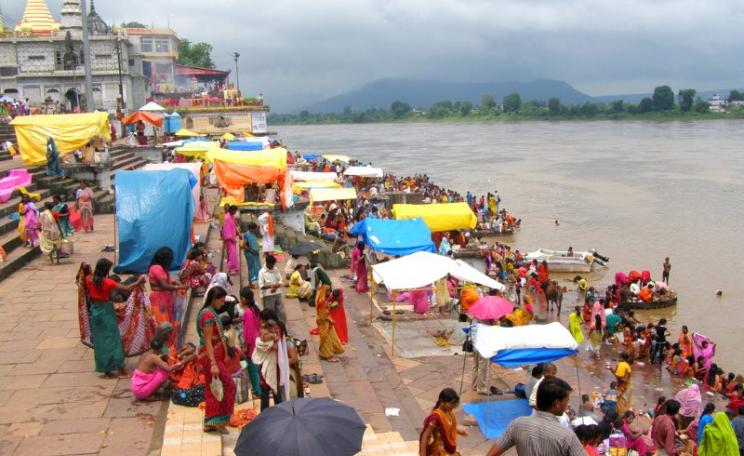Campaigners say Coca-Cola's 56 bottling plants in India have caused massive groundwater depletion
Coca-Cola is misleading investors about potential financial and criminal actions against the company in India, according to campaigners.
Last month, a government-appointed committee in the State of Kerala published a report recommending that Coca-Cola pay $48 million for damage caused by its bottling plant in the village of Plachimada.
The committee, which included heads of Kerala’s Agriculture, Groundwater, Health and Pollution Control Departments, said the company unlawfully depleted groundwater, polluted water resources and could face criminal charges on top of a financial penalty.
However, at Coca-Cola’s AGM in Atlanta this week, CEO Muhtar Kent said accusations against the company were ‘unfounded and false.’
‘There have been several scientific studies and litigation on the allegations that Coca-Cola depleted water and contaminated the environment but none, I repeat none, concluded that the Coca-Cola company or any of its bottlers were the cause,’ said Kent.
He also said the call to pay damages was ‘simply a recommendation from a committee' and that Coca-Cola would ‘rigorously defend any actions that result.’
Forced closure
A spokesperson for Coca-Cola has since said that any government committee or panel reviewing claims 'should first determine through an established process of law whether any damage was caused to the residents of Palakkad, and second, if such damage was caused, who was responsible'.
The spokesperson continued: 'It is unfortunate that the committee in Kerala was appointed on the unproven assumption that damage was caused, and that it was caused by Hindustan Coca-Cola Beverages.'
Campaigners say they still believe the company could be forced to pay damages and close some of the 56 bottling plants it operates across India.
‘It is only a matter of time before Coca-Cola will have to shut down its plants in water stressed areas and pay damages for the compensation for damages it has caused. Arrogance and incompetence are not traits suited for long-term sustainability,’ said Amit Srivastava from the India Resource Centre.
Groundwater levels
There is also further controversy surrounding another of the Coca-Cola’s bottling plants in the north Indian state of Rajasthan. Campaigners say groundwater levels have dropped over 22 meters since Coca-Cola started operating the facility in the desert region nine years ago.
A study paid for by Coca-Cola and conducted by the Energy and Resources Institute in 2008 recommended that the plant be shut down, relocated or stop extracting groundwater. But the company continues to extract groundwater in Kala Dera, say campaigners, even during last summer’s drought.
‘Coca-Cola has no business operating in Kala Dera when children, women and even farmers don’t have enough water to drink and make a living,’ said Mahesh Yogi of the Kala Dera Sangharsh Samiti, a local campaign group.
Coca-Cola continues to insist it aims to be a 'net-zero' user of groundwater in India by the end of 2010.
| READ MORE... | |
 |
NEWS ANALYSIS Coca-Cola just part of India’s water ‘free-for-all’ Water scarcity and mis-management in India are creating a significant human and ecological crisis that will only be worsened by climate change |
 |
HOW TO MAKE A DIFFERENCE 10 campaign groups calling for cleaner water Water - we pollute it, waste it, privatise it and dam it. Around the world millions of people lack access to it. But there are organisations out there trying to protect the planet's water for the benefit of all |
 |
GREEN LIVING Behind the label: Diet Coke Far from being the healthy drink implied by its sports sponsorships, Diet Coke is a worrying cocktail of neurotoxic and potentially carcinogenic chemicals |
 |
REVIEW Global Warring by Cleo Paskal An ambitious but at times over-simplistic look at how environmental, political and economic crises will redraw the world map |








